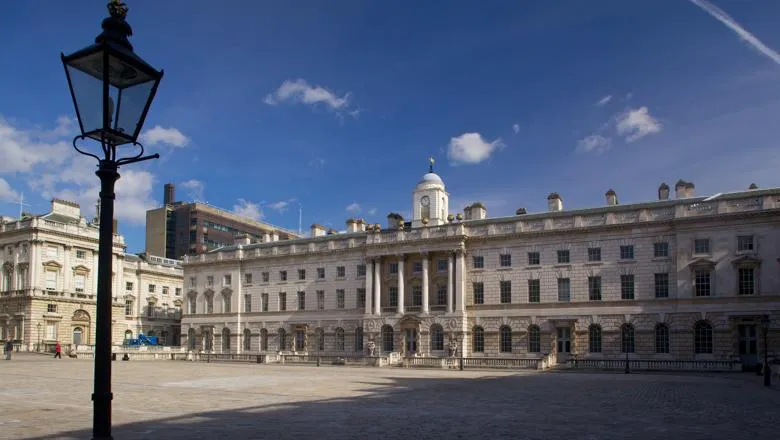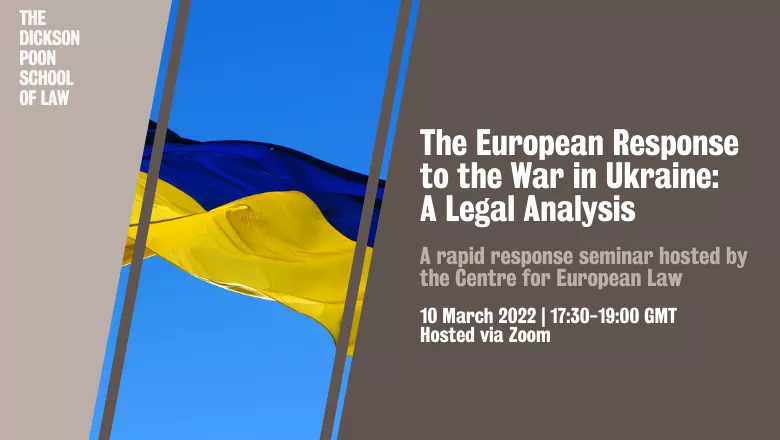The online-only event, The European Response to the War in Ukraine: A Legal Analysis, will run from 5.30pm to 7pm on Thursday 10 March.
The event will look at a broad range of issues, including human rights, sanctions, disinformation and the nuclear threat. Dr Oana Stefan, who will chair the seminar, said: “This war is not only fought on the battlefield, and we have observed, for years already, cyberattacks targeting Ukraine, the spreading of fake news in Ukraine and in the EU, not to mention the way in which the EU dependency on Russian gas has been weaponised in recent years.”
“This war will have consequences beyond Ukraine's borders and, in addition to the unfolding humanitarian disaster, is likely to affect fast-developing areas of EU policies such as the green single market and the digital single market, which are both high on the European Commission's agenda.”
Billed as a ‘rapid reaction seminar’, the panel will include Professor Kanstantsin Dzetsiarou, Professor in Human Rights Law, University of Liverpool; Professor Elaine Fahey, Professor of Law, Jean Monnet Chair in Law & Transatlantic Relations, City, University of London; Dr Luigi Lonardo, Lecturer in European Union Law, University College Cork; Professor Roman Petrov, Jean Monnet Chair in EU Law, Head of Jean Monnet Centre of Excellence in European Studies, Head of International and European Law Department, National University of Kyiv-Mohyla Academy; and Takis Tridimas, Professor of European Law, King's College London.
“This seminar will adopt a broad understanding of European law, to include also the European Convention on Human Rights. This Convention is highly important for the European Union as well. All legal orders are being tested right now, and it is important to see what legal tools, if any, are available for these institutions to show their relevance in the case of war.”
The Centre of European Law was launched in 1974. It is the oldest centre of its kind in the United Kingdom and one of the oldest in the world.
For almost half a century, it has sought to provide leadership in scholarly research in European law, offer academic teaching in specialist areas, and serve the wider community, especially, governments, international organisations, and the practising profession.
Its members are influential in shaping EU law and policy and many of its alumni hold prominent positions throughout Europe.



